City of Hope Phoenix, is accredited by several renowned professional health care organizations that assess and monitor the quality of cancer care.
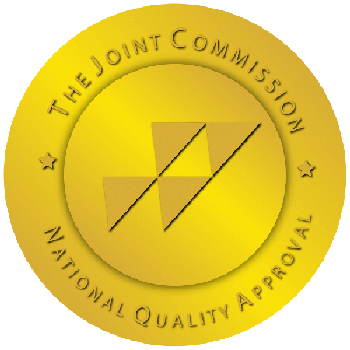
The Joint Commission
City of Hope Phoenix has earned The Joint Commission’s Gold Seal of Approval® for Hospital Accreditation by demonstrating continuous compliance with its performance standards. This reflects an organization’s commitment to providing safe and effective patient care and a willingness to voluntarily undergo a rigorous, unannounced onsite survey every three years.
During the review, a team of Joint Commission expert surveyors evaluate compliance with standards related to several areas, including patient rights, environment of care, infection prevention, leadership and medication management, to name a few. Surveyors also conduct onsite observations and interviews. The Joint Commission has accredited hospitals for more than 60 years.
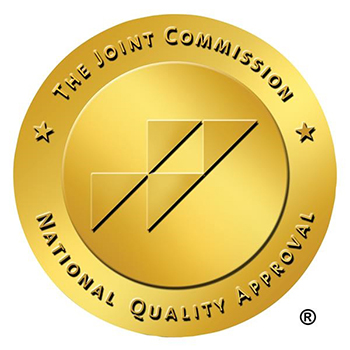
The Gold Seal of Approval from The Joint Commission
After a rigorous evaluation by The Joint Commission, City of Hope Phoenix was awarded the coveted Gold Seal of Approval for Lung Cancer Certification — an internationally recognized symbol of quality. This third-party accreditation recognizes our Lung Cancer Center’s performance in providing high-quality, safe care for patients with all stages and types of lung cancer.
Achieving this certification means our lung cancer experts have made the extra effort to review and improve key areas that affect quality and safety:
- Providing a safe environment
- Educating patients about their risks and options
- Protecting their privacy and other patient rights
- Evaluating their condition before, during and after diagnosis and treatment
- Protecting them against infection
- Planning for emergencies
The Joint Commission, a global leader in driving quality improvement and patient safety, accredits 22,000 healthcare programs around the world, consulting with doctors, nurses, and quality and safety experts to review current standards and make recommendations for improvement.
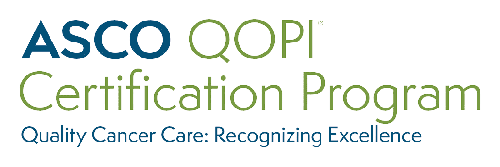
American Society of Clinical Oncology Quality Oncology Practice Initiative
City of Hope Phoenix is recognized as meeting the highest standards for quality cancer care by the Quality Oncology Practice Initiative (QOPI®) Certification Program, an affiliate of the American Society of Clinical Oncology (ASCO).
The QOPI Certification Program provides a certification for outpatient practices that meet the benchmarks for breast, colorectal, non-small cell lung, non-Hodgkin lymphoma, gynecologic and prostate cancers. The QOPI Certification Program (QCP™) was launched in January 2010.
The QCP seal designates those practices that not only scored high on the key QOPI quality measures, but meet rigorous chemotherapy safety standards established by ASCO and the Oncology Nursing Society (ONS). The QOPI Certification Program is a project of ASCO's Institute for Quality, an ASCO affiliate dedicated to innovative quality improvement programs.
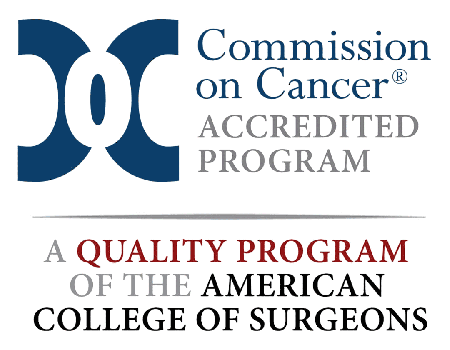
American College of Surgeons Commission on Cancer
City of Hope Phoenix is accredited by the American College of Surgeons Commission on Cancer (CoC). The CoC recognizes cancer programs that strive for excellence in providing quality care to cancer patients. The CoC is a consortium of professional organizations dedicated to improving survival and quality of life for cancer patients through:
- Standard-setting
- Prevention
- Research
- Education
- Monitoring of comprehensive quality care
CoC standards require facilities to create meaningful processes for implementation of patient-centered care, as well as participate in the National Cancer Database.
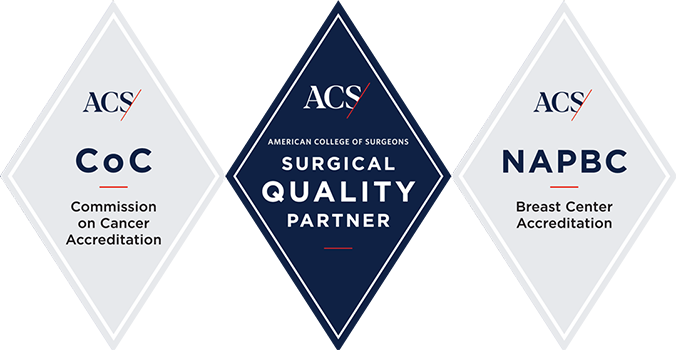
American College of Surgeons Surgical Quality Partner
City of Hope Cancer Center Phoenix is recognized by the American College of Surgeons as a Surgical Quality Partner, reflecting a proven record of adhering to rigorous industry standards in surgical quality to reduce complications, improve outcomes and save lives. Surgical Quality Partner designation was awarded to City of Hope Phoenix through participation in the Commission on Cancer (CoC) and National Accreditation Program for Breast Centers (NAPBC). CoC-accredited facilities follow strict standards for providing patients with a wide range of diagnostic, treatment and supportive services, either on-site or by referral, including community-based resources. The NAPBC focuses on the spectrum of the patient’s journey with breast cancer or breast disease, including prevention, screening, treatment and survivorship.
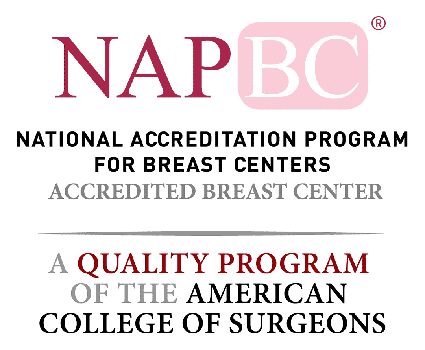
National Accreditation Program for Breast Centers
Accreditation by the National Accreditation Program for Breast Centers (NAPBC) is granted only to those centers that are voluntarily committed to providing the best possible care to patients with diseases of the breast.
Each breast center must undergo a rigorous evaluation and review of its performance and compliance with NAPBC standards. To maintain accreditation, centers must monitor compliance with NAPBC on an ongoing basis, and undergo an onsite review every three years.
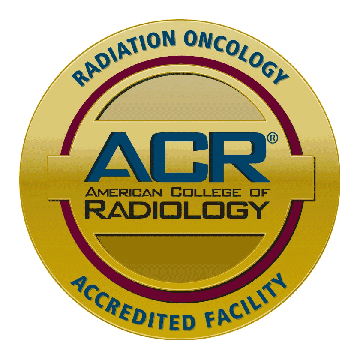
American College of Radiology
City of Hope Phoenix is accredited by the American College of Radiology (ACR). ACR accreditation helps assure that the highest standards of image quality and safety are met by documenting that providers meet requirements for equipment, medical personnel and quality assurance.
The hospital has earned accreditation in radiation oncology and multiple imaging modalities, including mammography, CT, PET, ultrasound, nuclear medicine, and MRI, to name a few.
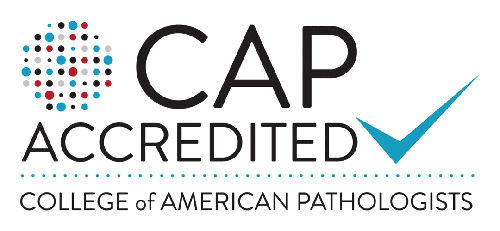
College of American Pathologists
The laboratory at City of Hope Phoenix is accredited by the College of American Pathologists (CAP). The CAP Laboratory Accreditation Program accredits the entire spectrum of laboratory test disciplines with the most scientifically rigorous customized checklist requirements. Serving as the gold standard, this accreditation ensures that facilities comply with laboratory standards and safety measures and maintain staff proficiency.
Inspectors examine the laboratory’s records and quality control of procedures, laboratory staff qualifications, equipment, facilities, safety program and record, and overall management.
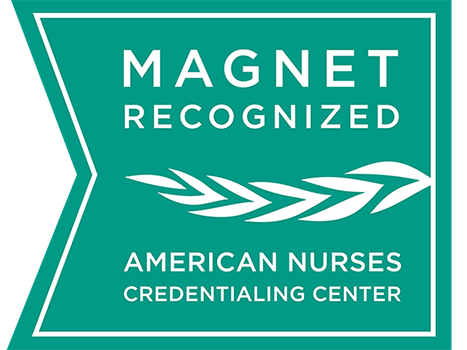
Magnet Recognition®
City of Hope Phoenix is a Magnet-recognized hospital for excellence in nursing. Awarded by the American Nurses Credentialing Center (ANCC), Magnet status is considered the highest honor a hospital can achieve for its nursing programs. Of the nearly 5,000 hospitals in the United States, fewer than 9 percent have Magnet Recognition.
The ANCC honors organizations that demonstrate excellence in nursing practice and adherence to national standards and best practices. To be recognized by the Magnet Recognition Program®, hospitals must meet or exceed specific standards set forth by ANCC. These standards define the highest quality of nursing practice and patient care.

FACT-accredited program
City of Hope Phoenix is accredited by the Foundation for the Accreditation of Cellular Therapy (FACT), which is the gold standard of excellence in cellular therapy, including hematopoietic cell transplantation. The designation recognizes the high-quality standards met or exceeded by the City of Hope Phoenix Hematologic Malignancy and Cellular Therapy Program’s adult autologous transplant, immune effector cellular therapy and CAR T cell therapy procedures.
FACT, an internationally recognized accrediting body for hospitals and medical institutions that perform stem cell transplants, recognizes excellence by facilities that meet rigorous standards, including those on clinical care, donor management, apheresis collection, processing, storage, transportation, autologous administration and cell release.